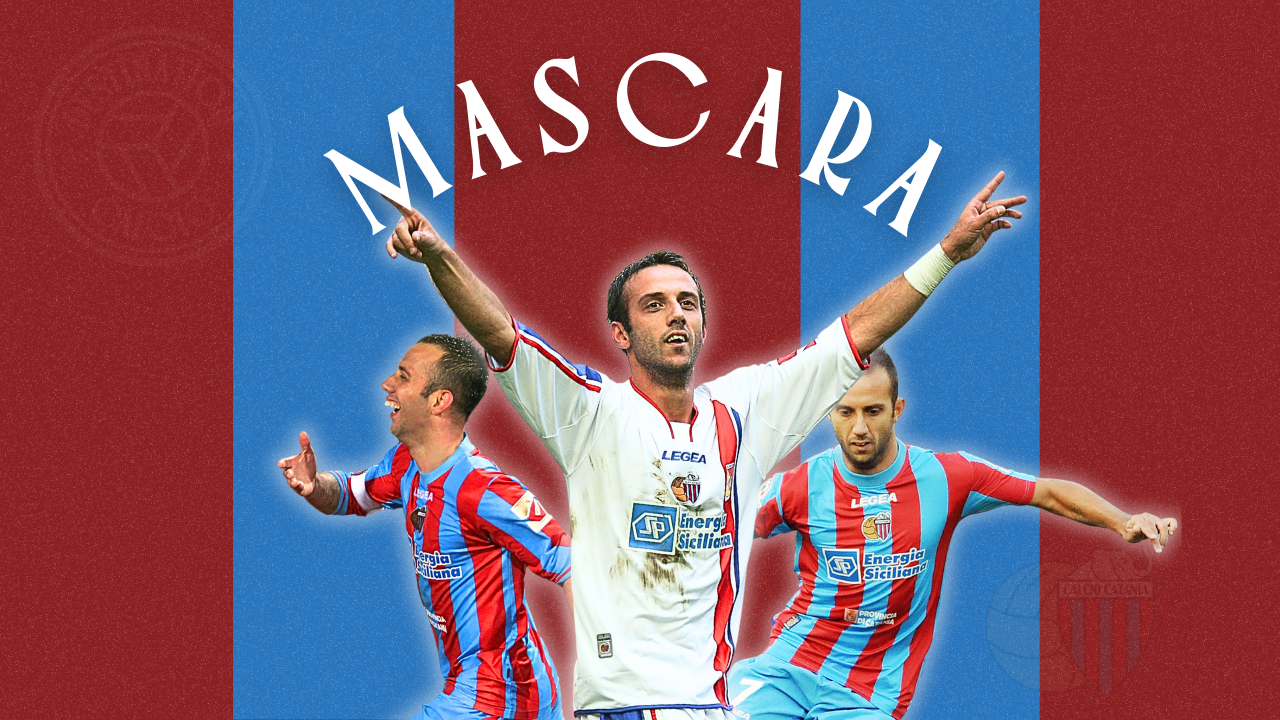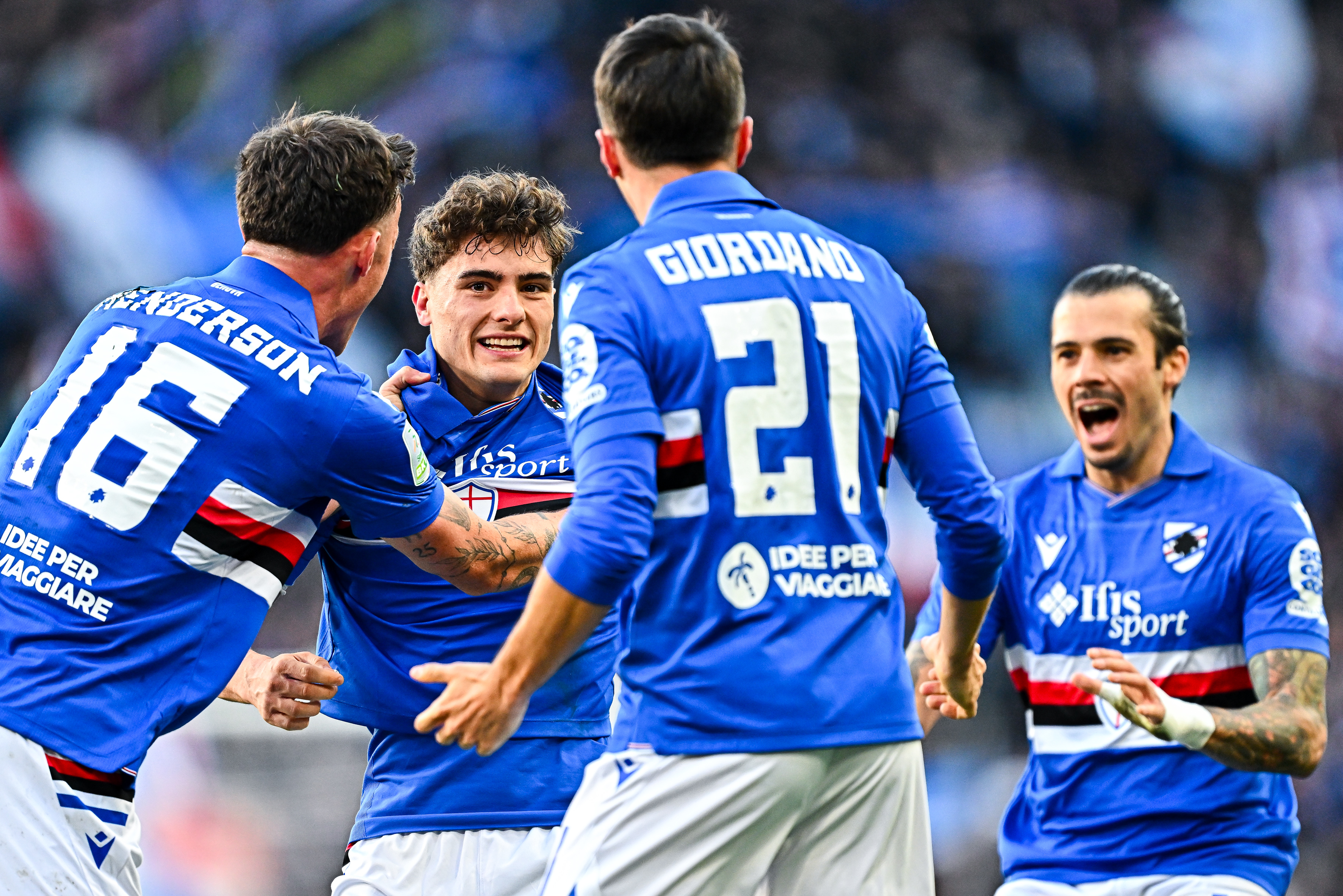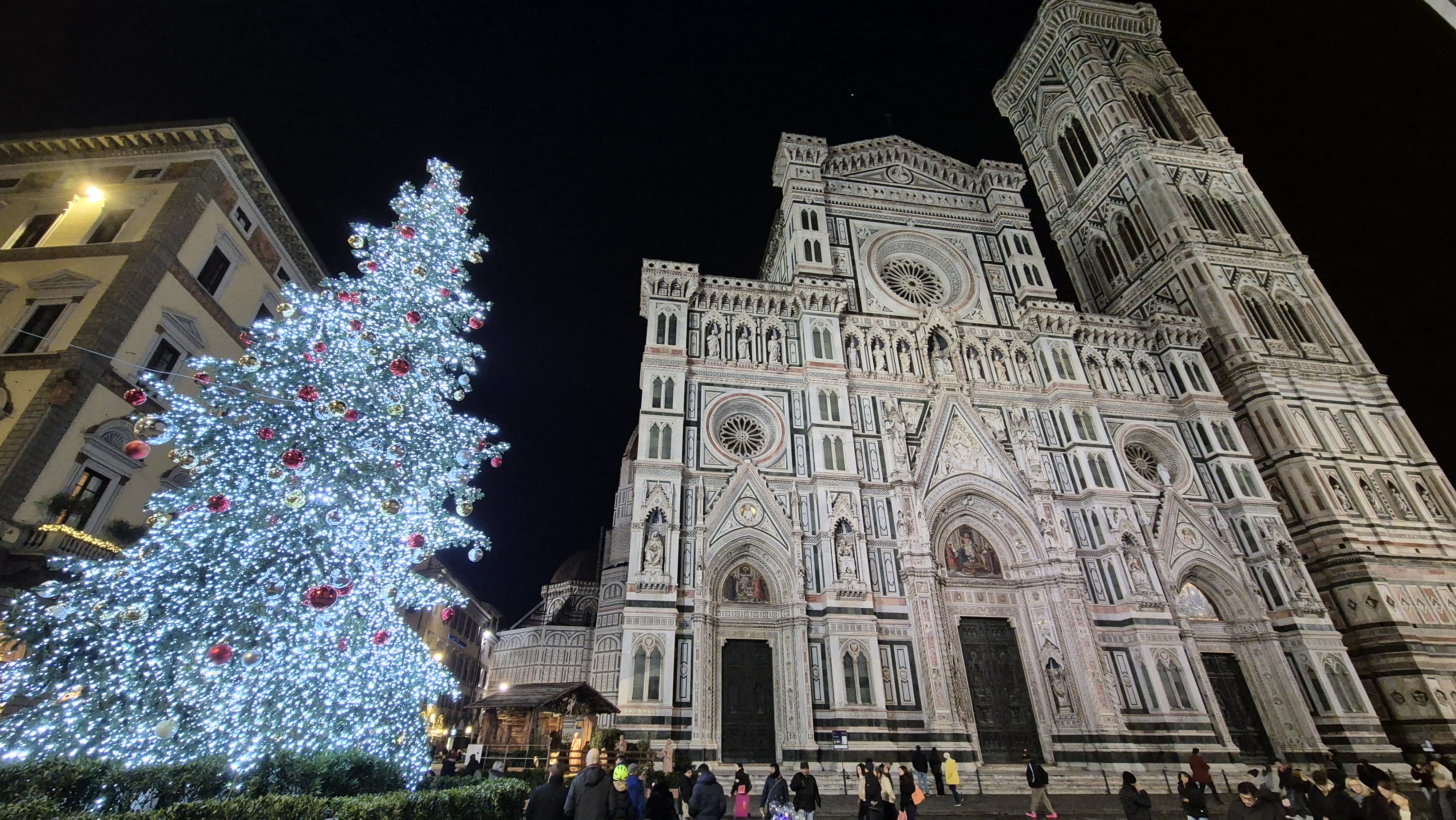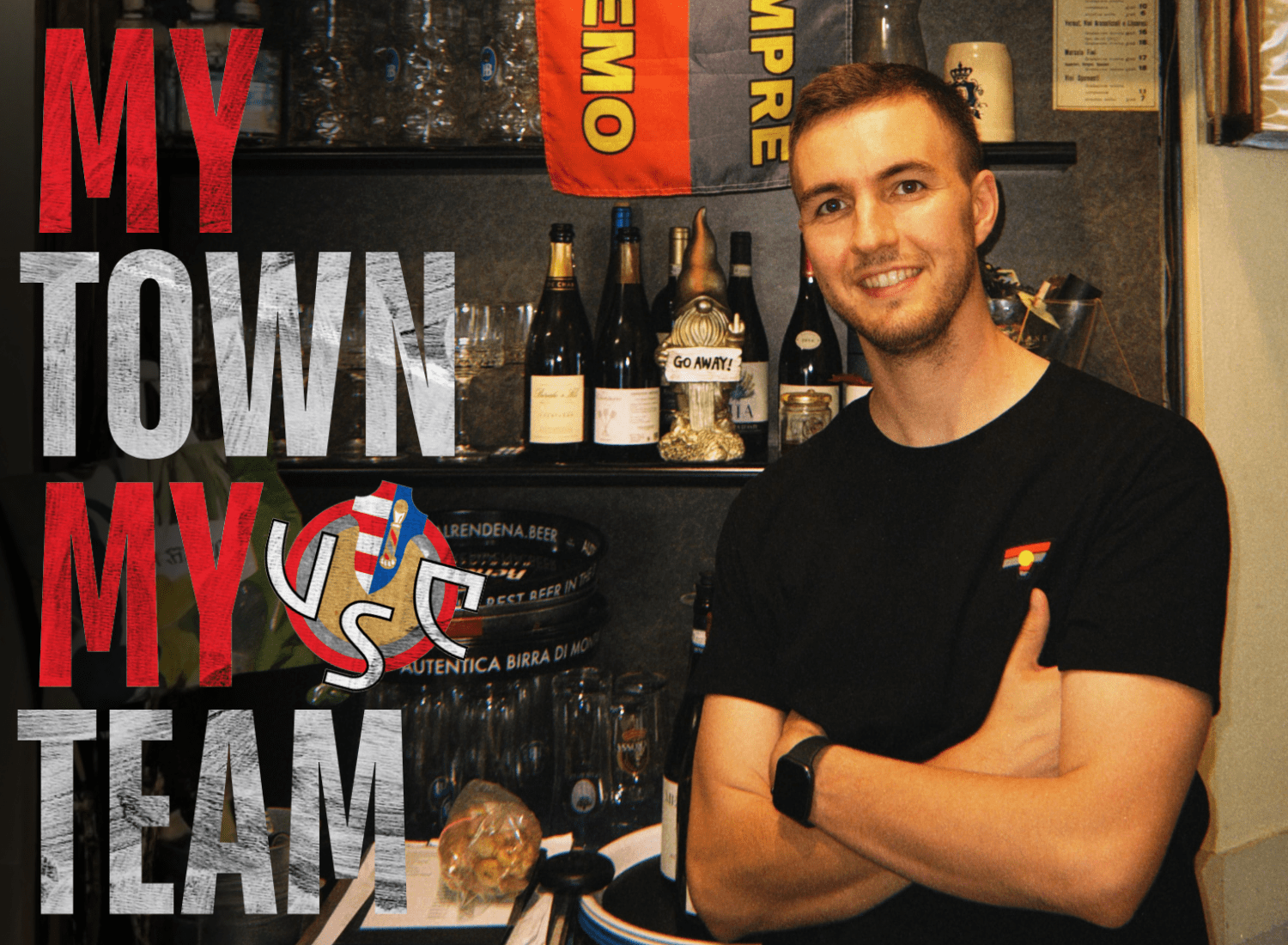
Giuseppe Mascara – The Sicilian Quagliarella who Made the Impossible Possible
By Emmet Gates
It was the beginning of spring 2009 in Sicily and at the Stadio Renzo Barbera Palermo were hosting Catania in the Derby di Sicilia.
The home side were already two goals — and a man — down by the time the ball landed at the feet of Giuseppe Mascara 60 yards from goal.
Takayuki Morimoto’s headed knockdown from a long Catania goal-kick bounced invitingly for the striker, who didn’t need asking twice.
Just inside the Palermo half, he launched a volley high into the Sicilian skyline. It didn’t come down until it reached the back of Marco Amelia’s net.
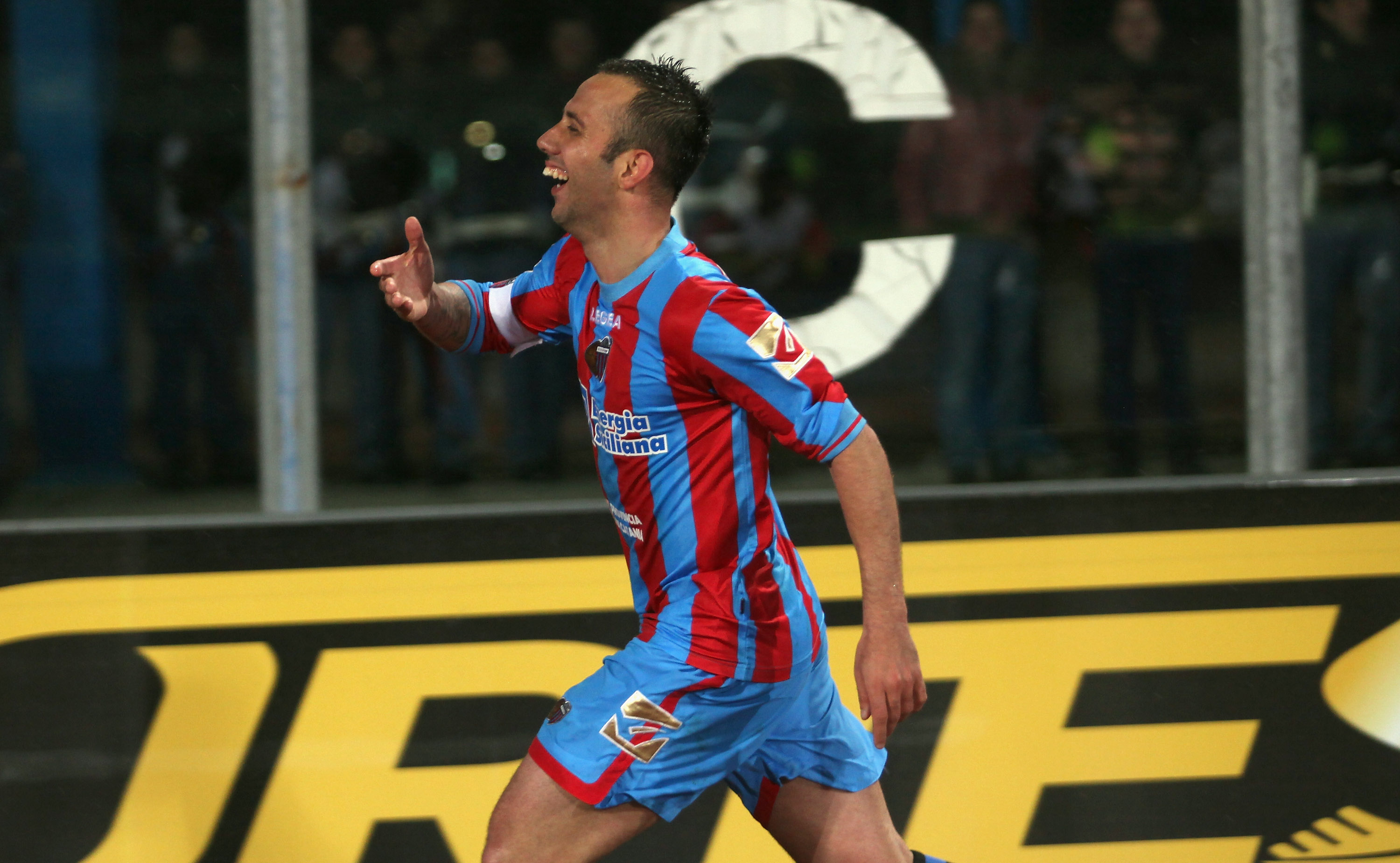
The 29-year-old had just scored one of the goals of the season, so good that even the home fans put their hatred of Catania aside to applaud.
Moreover, Sky Sport Italia commentator Maurizio Compagnoni believed it was a strike so outrageous, so unique, it would be shown even in Tonga.
The irony was that Mascara was a former Palermo player who’d been sold by the club directly to their neighbours five years prior.
His wonder strike epitomised a golden age for Sicilian football in Serie A. A time when the island had not one, but two, consistent teams mixing it with the big boys, and handing out regular beatings.
And for one glorious season, Sicily had three representatives atop the Italian football pyramid. Messina and Palermo gained promotion to Serie A in 2004, and Catania joined them two years later.
Messina’s time in the sun eventually burnt out, leaving the other two to fly the flag.
While Palermo had Edinson Cavani and Javier Pastore with a sprinkling of the mercurial Fabrizio Miccoli, Catania had Mascara. A man whose catalogue of goals was so good he could rival YouTube favourite Fabio Quagliarella.
A second striker in the mould of Quagliarella, he wasn’t exactly blessed with height nor pace, but he did have extraordinary technique and an eye for the spectacular.

Walter Zenga, Mascara’s coach at Catania, described him as a ‘madman’ for attempting shots from distance. When prompted by La Gazzetta recently that only he or Diego Maradona would try such genius, Mascara shut down any comparison.
“Let’s not joke and swear. Diego is the god of football, unique and inimitable,” he said. “I know that for Napoli he scored a similar goal against Verona [in 1985], but it’s unthinkable to compare myself to him or Roby Baggio, the other God of football.”
Born in the town of Caltagirone, 40 miles from the city of Catania, but raised in nearby Comiso, Mascara honed his technique for long-range missiles as a kid by playing in beach football tournaments in Marina di Ragusa during the summer months.
“I learned to lift the ball and kick it before it touched the ground. I lived football for fun,” he said of those competitions.
After coming through Comiso’s youth academy, his career started to gain some traction with a lone season in Serie C1 with Avellino. Sixteen goals in 29 games attracted the attention of Salernitana, then in Serie B.
Mascara scored on his debut, a 2-0 win against Sampdoria, and then strangely never kicked a ball for them again. He was signed by Palermo at the behest of Bortolo Mutti, and started well for the Rosanero before injury ruled him out for six months.
Then 24, he struggled to regain his place in the starting XI, and in January 2003 was signed by Genoa. Again things didn’t go to plan and the Rossoblu were relegated to C1, only to be readmitted due to the Caso Catania scandal.
Catania then, coincidentally, took a punt on him in the dying hours of the 2003 summer transfer window, and it was to have a transformative effect on his life.
Mascara hit 13 goals in his first season with the Elefanti. Luciano Gaucci, who owned Catania and Perugia at the same time, was so enamoured with his new forward that he promised a €1,000 bonus for every goal he scored.
Moreover, when Gaucci sold the club to local businessman Antonino Pulvirenti, Gaucci made sure he brought Mascara to Umbria before the deal was done, signing him on a season-long loan. However he disappointed in Perugia, and a year later found himself back in Sicily.
Forming a brilliant pairing with Gionatha Spinesi in attack, the duo rattled in 37 goals between them in 2005-06 as Catania finished second to Atalanta and secured promotion.
Back in Serie A for the first time since 1984, they surpassed all expectations in their first season back. Finishing 13th and comfortably surviving, Mascara only scored six goals that season, compared to Spinesi’s 17, yet it was the former’s efforts that remain in the memory.
Two-and-a-half years before the rocket in Palermo, he gave opposing Serie A keepers a warning of his spontaneous brilliance in a game against Inter at San Siro.
The game was only 15 minutes old when Mascara, down near the left-hand touchline, took one touch to control a pass before flicking the ball up and striking it firmly with the outside of his foot, beach football style.
The ball arched up and over Julio Cesar into the opposite top corner. A spectacular effort made all the more amazing in that, while Amelia was off his line in Palermo, Julio Cesar wasn’t. The margin to score was minimal, the execution had to be perfect, and it was. It was only his third goal in Serie A.
Yet the YouTube reel kept growing: an overhead kick against Empoli; a majestic 25-yard free-kick against Messina; Torino and Roma were handed similar set-piece treatment, while a sizzler of a shot against Fiorentina flew into the top corner from the opposite side of the box.
Two weeks after the Palermo goal, Mascara scored a second outrageous long-distance missile, this time against Udinese in a 1-1 draw. And it was somewhat fitting that Quagliarella was on the pitch to see it.
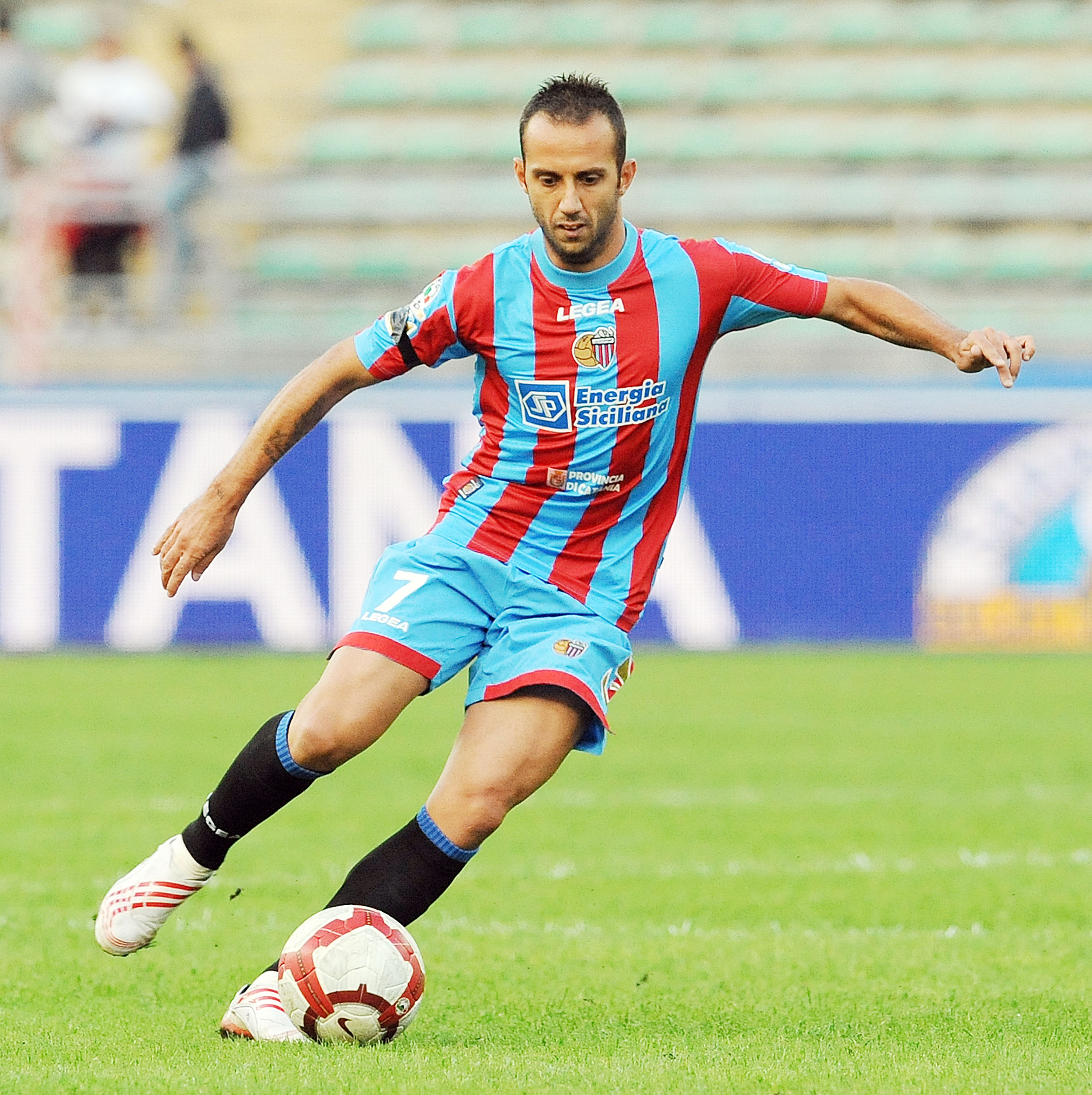
Catania’s diminutive marksman seemed to take glee in embarrassing Julio Cesar. They hosted Jose Mourinho’s Inter in March 2010 and, with the home side 2-1 up and 10 minutes remaining, they were awarded a penalty.
Mascara, who usually laced his penalties with his right instep, decided on a Panenka, performing the most sumptuous dink down the middle, the ball floating in the air like a snowflake.
These were halcyon years for Catania. They stayed in the Italian top flight for eight straight years, before suffering relegation at the end of the 2013-14 season.
Yet by that stage Mascara had moved on. Aged 31, he won a move to Napoli in the winter of 2011 as back-up to Cavani and Ezequiel Lavezzi, but rarely played.
After three goals in 16 games he left Napoli for Novara. While a little less mobile, Mascara proved he still had some magic left in that right foot. Naturally, one of his last great goals was a volley from outside the box, this time Genoa the victims.
His final goal in Serie A was a cracker against Lazio, a free-kick that kissed off the post in a 2-1 win.
Novara’s relegation at the end of 2011-12 meant Mascara was offloaded, and he joined Al-Nasr for a season.
He finished his career with 38 goals in Serie A, and there’s a growing lament the modern game no longer produces Mascaras. Players who operated off the cuff, took chances and were capable of receiving a standing applause in an opposing stadium during a heated derby.
It is a global problem. Systems and patterns of play have become king. Risk aversion shaved down to the bare minimum. Too much money at stake for mavericks to exist. The march of data and analytics continues.
It is debatable whether a player who would have been dubbed mercurial or genius in a by-gone age will ever make it to the highest echelons of the game again. Could a Mascara exist in today’s game? He doubts it.
“The problem is at grassroots level, in football schools they train robotic players, they favour the most robust and the plays are preordained,” he remarked when asked about the demise of players like him.
While he sees shades of himself in Paulo Dybala, Matteo Politano and Domenico Berardi, there are no players in the modern game completely like Mascara.
The kind who attempt what others could only dream of, who make young kids fall in love with the game.
For Catania fans, Mascara will be forever theirs. The Sicilian Quagliarella.
Related Articles
Related Articles
The Serie B season reaches halfway when the action returns after the winter break, with more live matches to look forward to on DCTV.
Florence is a dream destination year-round, but visiting during the winter months offers a completely different and magical experience.
We get a local take on what's hot in Cremona - where to eat and drink, sights to see and handy hints that might not be in the tourist guides.


